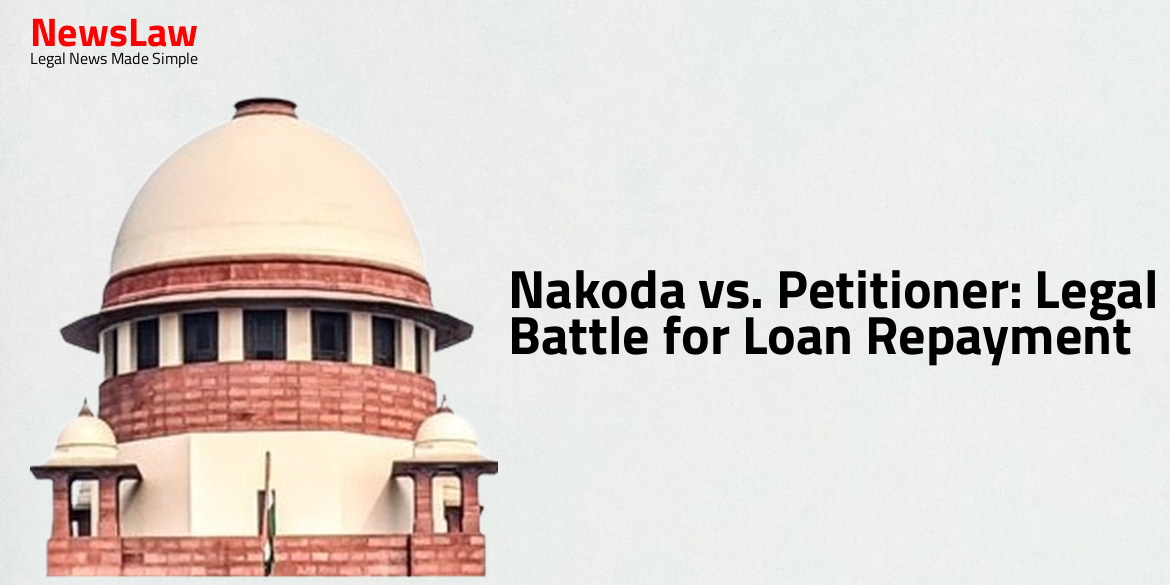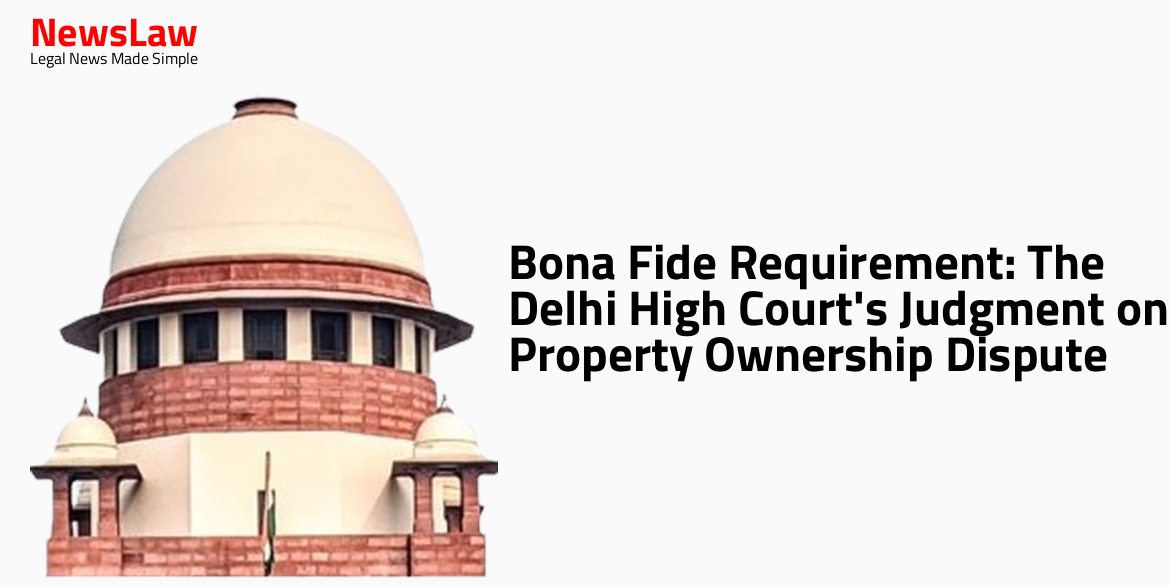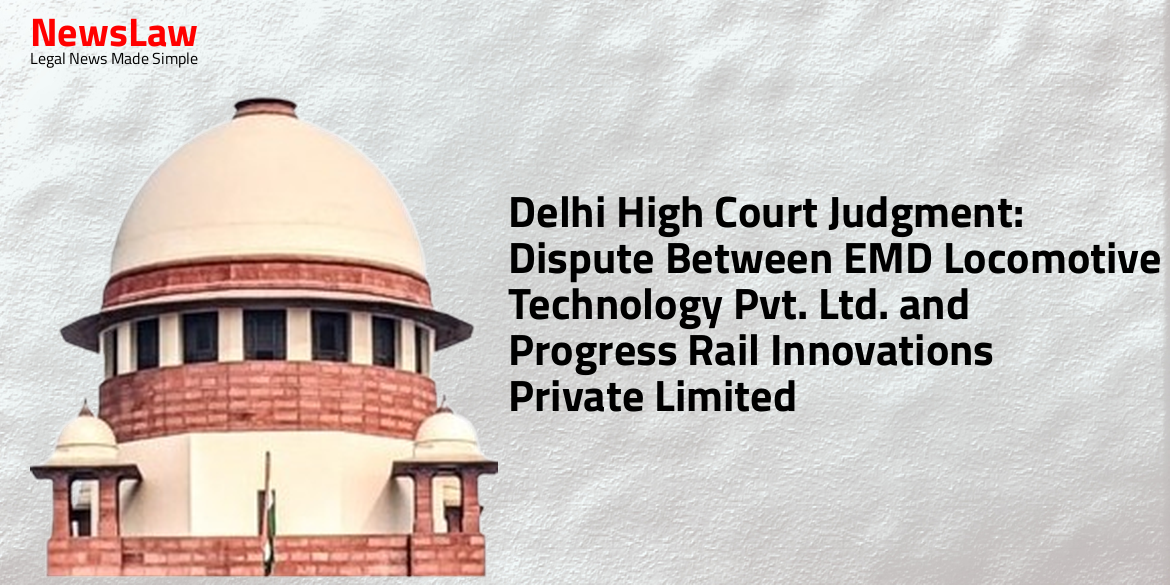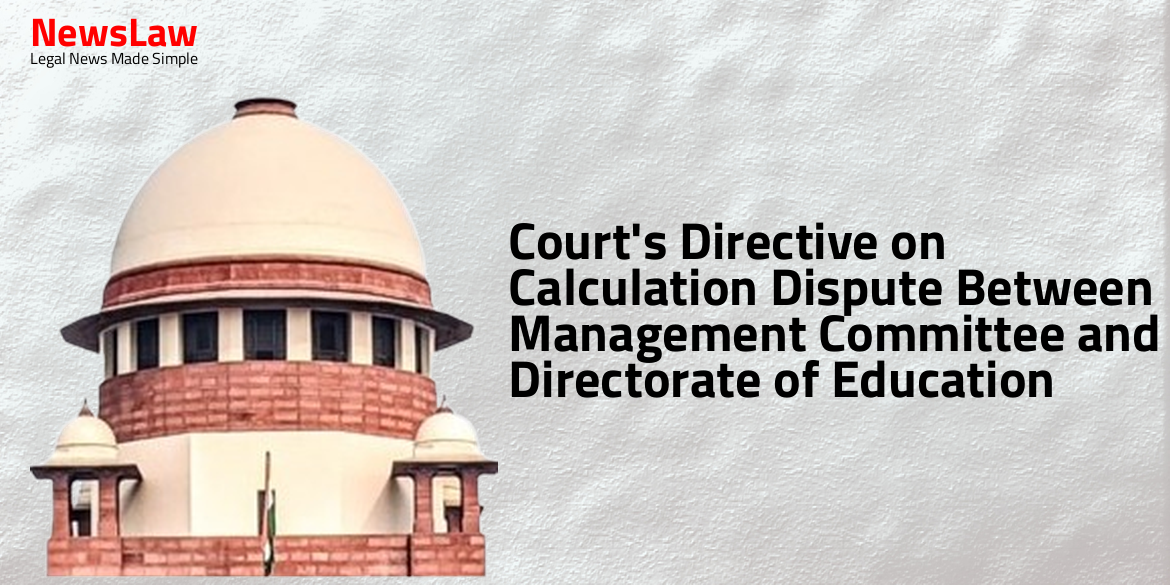A detailed overview of the legal case between Nakoda and the Petitioner unfolds as the Delhi High Court delivers a significant judgment. The dispute revolves around the failure to repay a substantial loan amount, leading to legal actions and concerns about asset disposal. Follow this intriguing legal battle for insights into loan repayment struggles. #DelhiHighCourt #LegalCase #LoanRepayment
Facts
- The loan account of Nakoda was classified as a Non-Performing Asset (NPA) on 14.12.2019.
- Moratorium is operating against the loan account in accordance with Section 14 of the Insolvency and Bankruptcy Code, 2016.
- The Petitioner alleged that the Respondents defaulted on making Equated Monthly Instalments (EMIs) soon after the loan disbursement.
- Despite regular follow-ups and reminders, the Respondents failed to honor their repayment obligations under the Finance Documents and the repayment schedule.
- The Respondents obtained a Non-Housing Loan credit facility of INR 10,52,00,000/- from the Petitioner for business expansion of Nakoda.
- The Petitioner resorted to legal actions, including measures under the Securitization and Reconstruction of Financial Assets and Enforcement of Security Interest Act, 2002, to recover the outstanding dues.
Arguments
- Petitioner submitted that the last trench of loan amount was paid on 31.05.2019.
- Petitioner’s concern regarding the reduction and selling of stake by Respondents in NGIL to render any judgement as mere paper decree.
- Petitioner alleges default by Respondents as admitted.
- Petitioner expressing apprehension that Respondents will sell off shares in Nakoda Group, leaving only a paper award for recovery.
- Petitioner invoking arbitration clause under Clause 10.08 of the agreement at New Delhi.
- Petitioner claimed outstanding loan amount of INR 17,52,52,409.65/- against Respondents.
- Petitioner initiated legal actions to recover dues, Respondents allegedly started disposing assets to frustrate recovery.
- Loss of inventory due to fire at Nakoda Fruit did not deter obligation towards loan payment by Respondents.
- Dispute regarding adjustment of EMIs towards FDRs reflected in correspondence between parties.
- Petitioner seeking attachment under XXXVIII Rule 5 of CPC, opposed by Respondents.
- Allegations of financial irregularities emphatically denied by Respondents.
- Petitioner’s concern about imminent risk to property in dispute due to Respondents’ actions.
- Petitioner’s claim of funds being siphoned off to related parties leading to NPA classification and non-payment of EMIs.
- Prima facie case in favor of Petitioner for siphoning of funds shown by records.
- Petitioner highlighting the extension of loan to Respondent no.4 by Nakoda Fruit in financial year 2019-20.
- Learned senior counsel argues against seeking attachment of shares held by the respondents in the company ‘M/s Nakoda group of companies’.
- The counsel argues that there is no evidence to show that the respondents have attempted to dissipate assets in a way that is detrimental to the present dispute.
- Any alleged dubious transactions were in financial years 2020-2021, 2021-22, after the respondents had already resigned in 2019.
- Given that a petition under Section 11 has been filed, the matter should be referred to the arbitral tribunal.
- The shares held by the respondents in NGIL are personal and unrelated to the loan facility in question.
- The petitioners have already taken symbolic possession of the mortgaged property.
Analysis
- The respondents did not dispute the appointment of a sole arbitrator for adjudication of the dispute between the parties.
Decision
- The parties are instructed to preserve the funds/assets to the extent of the loan amount until the matter is taken up by the learned arbitrator.
- All rights and contentions, including arbitrability of any claim, preliminary objections, and claims on merits are left for the learned arbitrator to adjudicate.
- Both parties must approach the learned arbitrator within two weeks.
- The arbitrable dispute is referred to the sole arbitrator as per the agreement between the parties.
- The petition under Section 9 of the A & C Act is converted into a petition under Section 17 and directed to be placed before the learned arbitrator.
- The remuneration of the arbitrator will be decided by the parties in consultation with the arbitrator.
- The arbitrator is to decide the application under Section 17 independently without influence from any court direction.
- The petitions and pending applications are disposed of with the mentioned directions.
- Until the petition under section 17 is taken up by the arbitrator, the status quo of the ‘mortgaged property’ or related property must be maintained by the respondents.
- The arbitrator is urged to take up the Section 17 application within two weeks and resolve it expeditiously.
Case Title: MS PNB HOUSING FINANCE LIMITED Vs. JAYESH PRAVIN CHOUDHARY & ORS. (2024:DHC:3895)
Case Number: ARB.P.-43/2024



